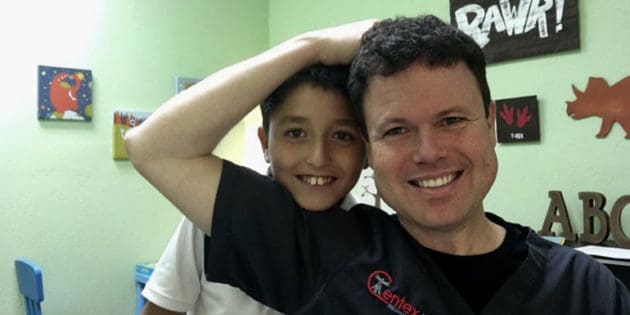Last week, I discussed the importance of being informed about what is happening in your child’s treatment room. I decided to address this particular question, since I have received multiple e-mails and facebook messages, asking for advice in this area. However, there is a second question I often get asked by parents. “How does my child progress, if I am never given anything to reinforce at home.”
If you are asking this question, then you are the type of parent I love to work with! It shows that you are taking a lead in your child’s development, and no amount of therapy can trump that. So give yourself a pat on the back. Job well done!
What should you be doing at home? This is a very simple question, but it has a very complex answer. I can’t speak for every therapist, just for myself. So, here is an example of how I work with parents of children, whom I treat in my clinic.
I don’t often give a lot of “homework”. Depending on the child’s developmental level, the way I reach a goal is often through a very intricate process. Repetition and consistency are paramount! I can control the way I, myself, deliver a cue to a child, but I can’t control yours. It is so essential that that cue to be given the same way every time. Then, once the child has reached a certain level of mastery of a skill, the consistency of giving the same exact cue isn’t needed anymore. In fact, it can be harmful. I don’t want a child to be able to respond to a question only when it is presented by me, the therapist, in a certain way. I often tell the parents that I don’t need their child to learn how to communicate with a 42-year-old man. They have to learn how to communicate with mom and dad, brother and sister, friends, and grandparents.
Another reason I don’t like to give a lot of “homework” is that the skill the child and I are working on is often extremely difficult and frustrating for the child. It’s strenuous for them to speak, and even though I try to make it as much ‘fun’ as I can, it is still work. Because of the difficulties of learning something new, often children rebel and fight back, or they shut down. When those resulting behaviors are directed at me during therapy, I have the training and endurance to work through those behaviors with the child. However, I don’t want the parents to have to battle with their children on a daily basis merely to reinforce a skill we are working on. I tend to tell the parents to let me be the “bad guy”, so that they can focus on just being mom or dad. I don’t want any of the children I see in therapy to feel as if every time they want to talk to their parents, they will have to work. I’m very protective of that parent-child relationship! Parents should be able to talk to their children as parents, not as therapists. Parents should always be the safe place for children to come and communicate in whatever way they feel the most comfortable!
This is why knowing what is happening in therapy is so important. You definitely need to reinforce what is done in therapy in your home! Play the games your child played in therapy. When speaking with your child, use words that emphasize the sounds your child was working on with his or her therapist. But keep in mind that you do not need to “teach” a skill. The “cueing” and “teaching” should be done by your child’s therapist, in order to avoid confusion.
- Why Doesn’t My Child’s Therapist Give Me Anything to Work on at Home? - February 19, 2018
- Why Doesn’t My Child’s Therapist Give Me Anything to Work on at Home? - February 19, 2018
- Why Doesn’t My Child’s Therapist Give Me Anything to Work on at Home? - February 19, 2018





